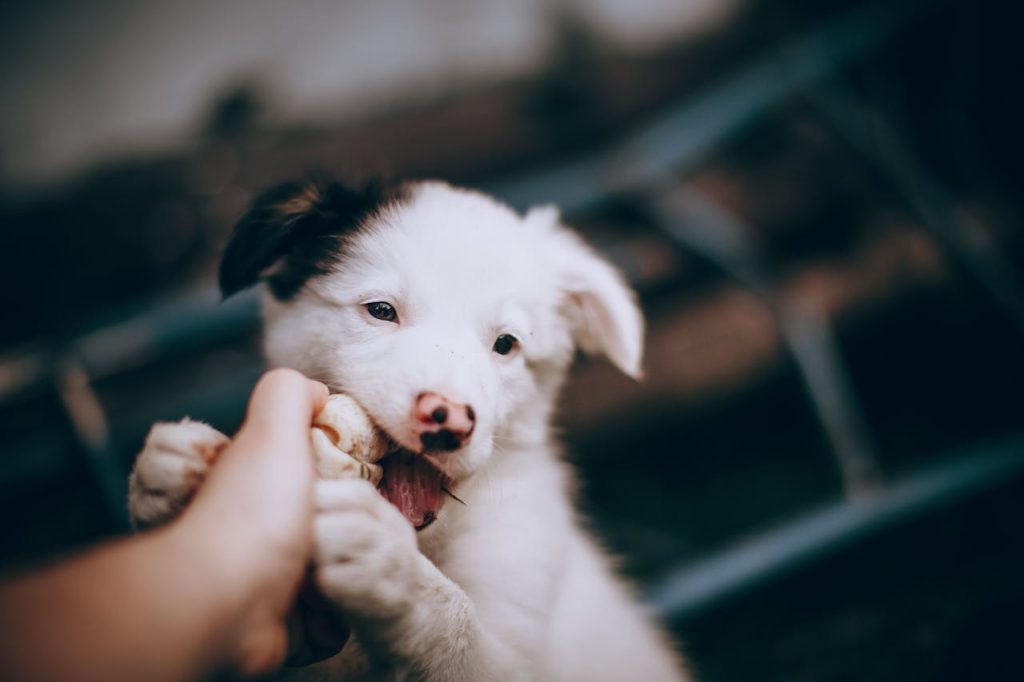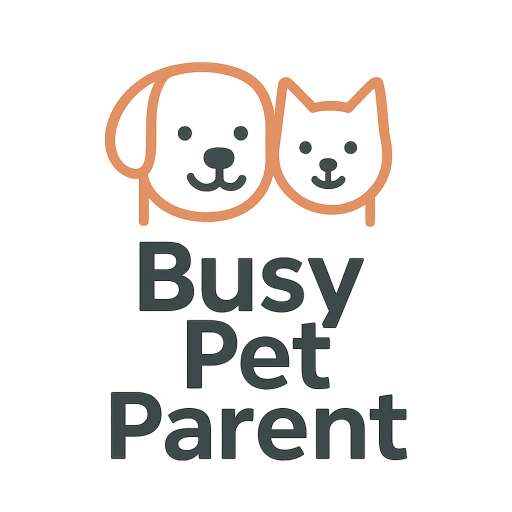
17 Proven Ways to Master How to Stop Puppy Biting Without Yelling
Wondering how to stop puppy biting without losing your patience — or your favorite socks? You're not alone. Biting is a totally normal part of puppy development, but that doesn't make it any less frustrating. Whether you're dealing with a teething tornado or a high-energy ankle-nipper, the key is to stay consistent, gentle, and calm.
This guide will show you exactly how to stop puppy biting using proven, positive strategies that work — even in small apartments. From teething toys to behavior redirection, these 17 techniques will help you raise a well-mannered pup without yelling, scolding, or feeling overwhelmed.
1. Understand Why Puppies Bite
Before you can stop puppy biting, it's important to understand why it happens. Most puppies bite for one of three reasons: teething, play, or overstimulation. They're not being aggressive — they’re exploring the world with their mouths, just like babies do.
Recognizing the root cause helps you respond appropriately and build habits that last beyond the puppy phase. Yelling or reacting with frustration can confuse your pup and even make the behavior worse.
2. Provide Plenty of Chew-Appropriate Toys
Biting often ramps up during teething (usually between 3–6 months). Providing frozen carrots, rubber chew toys, or textured teething rings can relieve discomfort while saving your fingers and furniture.
Rotate toys often to keep things fresh, and redirect biting to one of these acceptable options every time. For more insight on teething stages, check out this VCA guide on puppy teething.
3. Avoid Using Your Hands as Toys
It might seem harmless to wrestle or play tug-of-war with your hands when your puppy is small, but this teaches them that human skin is fair game. Instead, always use a designated toy — a rope tug, soft plush, or rubber bone — to play interactive games.
This builds long-term bite inhibition and reduces the chances of unintentional nips as your puppy grows stronger and more excitable.
4. Use a High-Pitched Yelp or “Ouch”
When your puppy bites too hard during play, let out a quick, high-pitched "ouch!" — just like another puppy would. This mimics natural canine behavior and teaches bite inhibition through social feedback.
If your pup stops or backs off, calmly praise and offer a toy instead. This teaches that gentle play continues, but rough play ends abruptly — no yelling required.
5. Redirect to a Toy Immediately
Don’t just say “no” — give your puppy an appropriate alternative. If they start biting your hand, calmly grab a nearby chew toy and move it in front of them. Wiggle it to encourage engagement, then praise once they bite the toy instead of you.
This method not only redirects the behavior, but reinforces the idea that toys = good and hands = off-limits. It’s one of the most effective long-term techniques for how to stop puppy biting gently.
6. Stop Play Briefly if Biting Continues
If your puppy keeps biting despite redirection, calmly stop the game. Stand up, turn your back, or leave the room for 10–20 seconds. This short "social timeout" teaches that rough behavior makes fun go away.
Puppies are incredibly motivated by interaction — even more than treats sometimes. Consistently pausing play teaches them that biting stops the fun, not that you're angry or unpredictable.
7. Keep Training Sessions Short and Fun
Puppies have short attention spans, especially when they're teething or overexcited. Keep bite-control training sessions brief (2–5 minutes), and always end on a positive note — like a successful toy redirection or a gentle nose target.
This prevents frustration and helps reinforce the behavior you're trying to build. Frequent, low-pressure repetition is one of the best-kept secrets to how to stop puppy biting without stress.
8. Stick to Calm Play, Not Wrestling
Wrestling, roughhousing, or overexciting your puppy often ramps up biting behavior. Instead, focus on calm fetch, tug with rules, or puzzle toys to burn off energy without promoting nipping.
If your pup starts getting mouthy, dial things down or take a short break. Teaching play boundaries is just as important as teaching basic commands — and a huge part of how to stop puppy biting early on.
9. Give Your Puppy Safe Space to Reset
Sometimes puppies bite simply because they’re overstimulated, overtired, or frustrated. A quiet crate, playpen, or cozy mat in the corner can give them a place to decompress and reset.
This isn’t a punishment — it’s a gentle way to help your puppy regulate their energy and avoid meltdowns. If you're crate training in an apartment, check out our crate training guide for setup ideas.
10. Reinforce Calm Mouth Behavior
When your puppy chooses not to bite — especially in a moment where they usually would — reward that behavior! Calm praise, a treat, or simply engaging with them playfully reinforces the idea that gentle behavior earns rewards.
Training isn’t just about stopping unwanted behavior — it’s also about recognizing when your dog is making great choices and helping them repeat them confidently.
11. Feed with Purpose: Use Enrichment Toys
If your puppy has a lot of pent-up energy, mealtime can become a moment of chaos — especially when paired with biting behaviors. Try feeding part of their meals through a food puzzle, snuffle mat, or treat ball instead of a bowl.
This taps into natural chewing and sniffing instincts, helping reduce boredom and redirect that bitey behavior into something productive. For extra ideas, the Fear Free team has a video on stopping destructive chewing worth watching.
12. Don’t Wait Until the Behavior Gets Worse
Mouthing and play nipping are part of puppyhood — but if left unaddressed, they can turn into more persistent adult behaviors. Start redirecting, reinforcing, and gently interrupting bitey behavior the moment it begins.
The earlier you teach your dog how to stop puppy biting, the faster and easier the training process will be. It’s never too soon to guide them toward better habits with clarity and kindness.
13. Use a Consistent Cue for Redirection
Choose a short phrase like “gentle,” “leave it,” or “no bite” and pair it with calm redirection every time your puppy starts to nip. Keep your tone soft and consistent — never harsh or loud.
This helps your puppy associate the cue with pausing and switching to a toy or calm behavior. Over time, your voice alone can start to guide better decisions without needing constant intervention.
14. Teach “Drop It” and “Take It” Early
Puppies who know when to let go — and when it’s okay to grab — are far less likely to bite impulsively. Begin by offering a toy and saying “take it,” then gently trade it for a treat while saying “drop it.”
This back-and-forth builds impulse control and turns bitey moments into structured, rewarding exchanges. It’s also a life skill that helps with everything from leash safety to food manners.
15. Avoid Punishment or Scare Tactics
Spray bottles, shouting, or “alpha rolls” don’t stop puppy biting — they just create fear and confusion. They can also backfire, especially in sensitive or nervous dogs, leading to avoidance or defensive behavior.
Positive reinforcement, redirection, and calm interruptions are far more effective for building trust. If you’re feeling overwhelmed, step away and try again later — kindness builds better habits every time.
16. Monitor for Overstimulation and Tiredness
Puppies often bite more when they’re tired or overstimulated. Zoomies, wild eyes, and sudden biting outbursts may mean they need a nap, not a correction. Respect your puppy’s natural rhythms and offer a safe space to decompress when needed.
Knowing when to back off — and allowing recovery time — can prevent meltdowns and support your efforts in learning how to stop puppy biting effectively.
17. Stay Patient — Progress Takes Time
Even with perfect consistency, most puppies don’t stop biting overnight. The biting phase often peaks between 8–14 weeks and gradually fades as your pup develops better communication and control.
Celebrate small wins, stay calm during setbacks, and remind yourself: you’re raising a lifelong companion. The habits you teach now lay the foundation for a confident, respectful, and happy dog.
Final Thoughts
Puppy biting can feel overwhelming, especially when you're tired or working from home. But with patience, redirection, and the right tools, it’s 100% possible to teach your pup how to stop biting without yelling or fear. These 17 proven techniques work for new pet parents, busy apartment dwellers, and even first-time dog owners looking to build trust and better habits. You've got this — one gentle nudge at a time.
Frequently Asked Questions
How long does the puppy biting phase usually last?
Most puppies outgrow the biting phase between 5–7 months of age. However, some behaviors can linger into adolescence if not consistently redirected early on.
Should I use a spray bottle or loud noise to stop biting?
No. Punishment-based methods like spray bottles or loud noises often increase anxiety and don’t teach your puppy what to do instead. Focus on redirection, calm cues, and rewarding good behavior.
Is crate training helpful for reducing biting?
Yes — crates can give puppies a break when they’re overstimulated or tired. Learn more in our crate training tips for apartment dogs.
What if my puppy bites hard even during gentle play?
Use a consistent cue like “ouch” and stop play immediately. Over time, your puppy will learn that biting too hard ends the fun. If needed, add short timeouts and toy redirection to reinforce the message.
Do certain breeds bite more than others?
Some high-energy or working breeds (like herding dogs) are more prone to mouthy behavior, especially during teething. That said, every puppy can learn bite inhibition with the right approach.

Join the Busy Pet Parent Newsletter!
Get easy routines, time-saving tips, and the latest gear reviews—delivered straight to your inbox.
Perfect for busy pet owners, apartment dwellers, and anyone who wants a happy, healthy companion (without the stress).
Exclusive guides & checklists
Product recommendations & deals
No spam—unsubscribe anytime!




